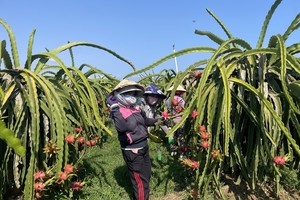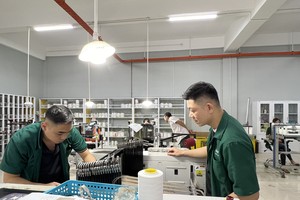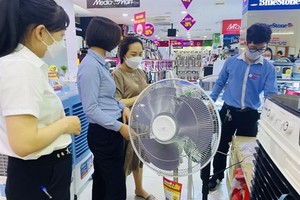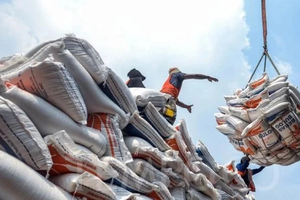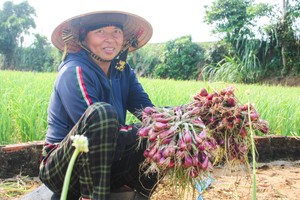Many Vietnamese businesses have not acknowledged regulations on global trade relationships, leaving them being vulnerable and grappling with anti-dumping lawsuits, experts noticed.

“Acknowledging regulations on global trade relationships helps businesses to avoid anti-dumping lawsuits,” said Tran Huu Huynh, head of the Legal Department, Vietnam Chamber of Commerce and Industry.
“However, around 66 percent of Vietnamese exporters have not know about the basic requirements and 50 percent do not know the country’s commitments to the WTO, which relate to their businesses,” Huynh said.
“They are also lacking supports from domestic associations, leaving them being vulnerable and grappling with the lawsuits,” he told Dau Tu Tai Chinh Newspaper.
Nguyen Duc Thuan, chairman of the Vietnam Leather and Footwear Association, said “local businesses should make a tight cooperation with associations in an effort to improve the possibility of winning anti-dumping lawsuits.”
Thuan noticed that Vietnam’s footwear have dealt with many lawsuits for five years, of which it took hundreds of millions of US dollars for every cases each year.
“Local businesses should set up, improve their distribution system and marketing strategies and strengthen their financial base in order to cope with lawsuits, which take long times,” he said.
Le Danh Vinh, deputy minister of industry and trade, said acknowledging trade defense measures not only helps local businesses reduce the possibility of being sued, but also improve the self defense of domestic productions.
Statistics show Vietnam’s businesses have coped with 42 trade disputes since 1994, of which 35 were anti-dumping lawsuits.
Some key export commodities are facing the increasing risk of trade remedies this year, especially anti-dumping lawsuits from importers, Thanh Nien Newspaper cited experts as warning.
Some of Vietnam’s top sectors, such as garments, steel and woodwork, are on the list of affected products.
Former deputy minister of Industry and Trade Phan The Rue said trade remedies imposed on Vietnam would become more “diverse” in the near future.
“In addition to remedies relating to product quality, subsidies to export industrial products, and food hygiene, regulations on goods’ origin and environmental standards are increasing and getting stricter,” he said.
Trade remedy expert Dr. Peter J. Koenig, an attorney with global law firm Squire Sanders, said export commodities that are vulnerable to investigation for antidumping and countervailing duties included mostly items produced in small volumes by importing countries.
Vietnam’s key export commodities such as garments, steel, woodwork and handicrafts are vulnerable to the lawsuits, he said. Some other commodities such as chemical and plastic products are also at risk of investigation despite their small export volumes.
Antonio Berenguer, trade counselor of the EU delegation to Vietnam, said Vietnamese exports are facing stricter requirements from the EU, as the market is increasingly interested in the origin of products.
For example, to ensure environmental protection and sustainable development, the EU requires that businesses selling timber to the market for the first time must conduct a due diligence test to minimize the risk that the timber comes from an illegal source.
Rue said this is one of the big barriers to Vietnam exports to the EU, as the country’s key export industries such as textiles and garments, footwear and woodwork are still heavily dependent on the import of materials.
